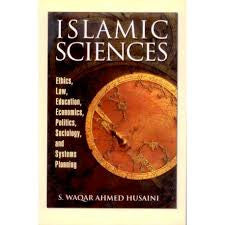



About
Islamic Sciences: Ethics, Law, Education, Economics, Politics, Sociology, and Systems Planning. This book is an introduction to certain Islamic sciences (ideology): epistemology, education, jurisprudence, ethics and law, politics, economics, philosophy and history of science, and sociology of culture and development. These disciplines are applied in Islamic systems planning , particularly the engineering. The basic sources are the Quran which is used extensively, selected Traditions (Sunnah, Hadith) of Prophet Muhammad, the legacy of Islamic thought from the earliest to modern times, and contemporary rational ( aqaliyyah, or secularized) knowledge of the social and natural sciences and engineering. This is a modern pioneering work on the principles and methodology of Islamization of all knowledge, i.e., the Islamization of the contemporary ideological and technological cultures, through use of the above sources and modern ijtihad (Islamic expert opinion). This illustrates the Quranic principle of integration (tawhid), exemplified by Prophet Muhammad, through use of revelation (wahy) and reason ( aql), and imitation (taqlid) and good innovation (bid ah hasanah).
Islamic Sciences: Ethics, Law, Education, Economics, Politics, Sociology, and Systems Planning. This book is an introduction to certain Islamic sciences (ideology): epistemology, education, jurisprudence, ethics and law, politics, economics, philosophy and history of science, and sociology of culture and development. These disciplines are applied in Islamic systems planning , particularly the engineering. The basic sources are the Quran which is used extensively, selected Traditions (Sunnah, Hadith) of Prophet Muhammad, the legacy of Islamic thought from the earliest to modern times, and contemporary rational ( aqaliyyah, or secularized) knowledge of the social and natural sciences and engineering. This is a modern pioneering work on the principles and methodology of Islamization of all knowledge, i.e., the Islamization of the contemporary ideological and technological cultures, through use of the above sources and modern ijtihad (Islamic expert opinion). This illustrates the Quranic principle of integration (tawhid), exemplified by Prophet Muhammad, through use of revelation (wahy) and reason ( aql), and imitation (taqlid) and good innovation (bid ah hasanah).
Islamic Sciences: Ethics, Law, Education, Economics, Politics, Socialogy, and Systems Planning
- Regular price
- $7.95
- Sale price
- $7.95
- Regular price
-
Couldn't load pickup availability



